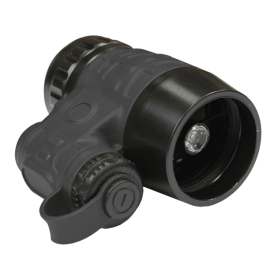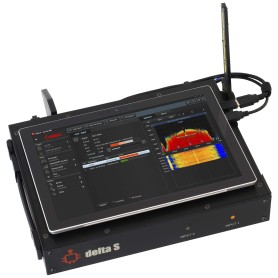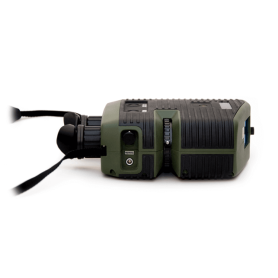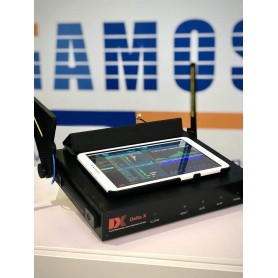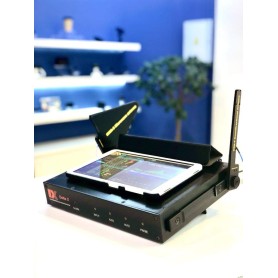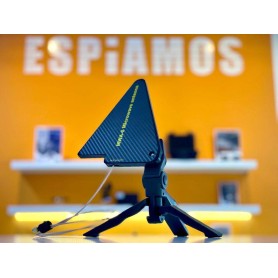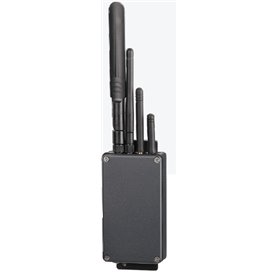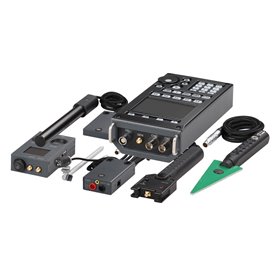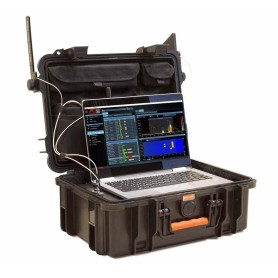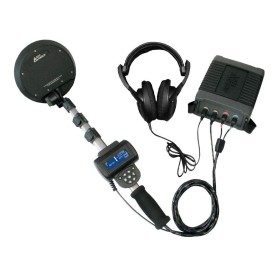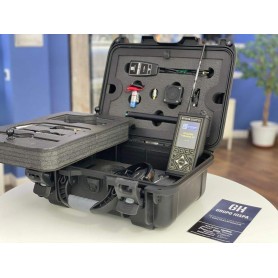
Spy Device Detectors: Protect Your Privacy with State-of-the-Art Technology
In a world where spy technology is becoming increasingly accessible, spy device detectors have become an essential tool for ensuring security and privacy. These devices are designed to detect signals from hidden cameras, spy microphones, GPS trackers, and eavesdropping devices . Whether for personal protection, corporate security, or professional counterintelligence use, having a reliable detector allows you to identify and neutralize potential threats.
Spy detectors use different technologies to locate hidden devices. Some work by detecting radio frequency (RF) , identifying wireless signals emitted by microphones and cameras. Other models analyze electromagnetic fields or use infrared light to detect hidden camera lenses. There are even hybrid devices that combine several detection methods to offer greater accuracy.
At ESPIAMOS® , we offer a selection of high-precision spy device detectors used by industry professionals and individuals seeking to protect their privacy in hotels, offices, vehicles, or confidential meetings.
Main Uses of Spy Device Detectors
- Hidden Camera Detection: Identifies spy camera lenses hidden in everyday objects such as clocks, electrical outlets, or smoke detectors.
- Spy Microphone Location: Detects hidden GSM, WiFi, or radio frequency (RF) audio transmitters in rooms, vehicles, or offices.
- Corporate Counterintelligence: Protecting corporate meetings and spaces from spying attempts using voice recorders or listening devices.
- GPS Tracker Detection: Allows you to identify hidden trackers in vehicles and prevent unauthorized tracking.
- Personal and Residential Protection: Guarantees privacy in hotels, homes, or environments where covert surveillance is suspected.
Types and Key Features of Spy Device Detectors
Spy detectors are divided into several categories depending on the type of threat they can identify. Some models specialize in detecting radio frequencies , while others can identify hidden camera lenses or GPS beacons . To ensure effective protection, it's important to understand the features of each model.
Radio Frequency (RF) Detectors
Radio frequency detectors are capable of identifying wireless signals emitted by spy cameras, hidden microphones, and listening devices . They work by scanning the frequency spectrum for suspicious emissions.
- Wide Frequency Range: Detects GSM, WiFi, Bluetooth, VHF and UHF signals.
- Live Stream Detection: Identifies devices that broadcast audio or video in real time.
- Visual and Audible Alerts: Indicate the proximity of the spy device.
- Used in Corporate Security: Ideal for protecting private meetings or professional environments.
Hidden Camera Detectors
Hidden camera detectors use infrared or laser light to locate camouflaged lenses on everyday objects.
- Reflective Lens Location: Identifies the presence of a hidden camera even if it is turned off.
- Compatible with Wireless and Wired Cameras: Allows detection of any type of lens, regardless of its transmission system.
- Fast and Discreet Operation: Simply scan the suspicious area to find hidden devices.
- Use in Hotels and Private Spaces: Recommended for detecting cameras in accommodations, offices, or changing rooms.
GPS Locator Detectors
GPS tracker detectors help identify hidden trackers in vehicles and prevent unauthorized tracking.
- Active GPS Beacon Detection: Locates active trackers in real time.
- Passive Scan Mode: Some models can detect GPS that is turned off by looking for magnets or suspicious devices.
- Compatible with Different Technologies: Detect devices that operate on 2G, 3G, 4G and satellite positioning networks.
- Ideal for Personal and Business Security: Used in high-risk vehicles or to prevent corporate espionage.
Nonlinear Junction Detectors (NLJD)
Nonlinear junction detectors (NLJDs) identify the presence of electronic circuits in suspicious objects, even if they are turned off.
- Hidden Device Detection: Find microphones, cameras, or recorders in walls, furniture, or electronic devices.
- Operation in places without signal: They do not depend on radio frequency, which allows their use in safe environments.
- Professional Use: Employees in security audits and protection of confidential information.
- High Precision: Differentiates between suspicious electronic elements and harmless objects.
Where to Buy Spy Device Detectors?
At ESPIAMOS® , we offer a selection of spy device detectors designed for personal and professional protection. We also offer exclusive benefits for our customers:
- Specialized Technical Advice: We have a team of counterintelligence experts to help you choose the best device.
- Official 3-Year Warranty: All our products include an extended warranty that ensures proper operation.
- Discreet and Secure Shipping: All orders are shipped in packages with no visible identification.
- Secure Payments and Data Protection: All transactions are processed securely, with only the "HID" symbol appearing on bank statements.
- Permanent Stock and Immediate Shipping: We have devices ready for delivery without unnecessary waits.
Discover our range of spy device detectors and protect your privacy with the best security technology.
Frequently Asked Questions about Spy Device Detectors
What types of devices can anti-spy equipment detect?
Spy device detectors are designed to identify various electronic threats, such as hidden cameras, wireless microphones, active voice recorders, GPS trackers, and other transmitting devices. Some advanced models can even detect hidden electronic components even when they're turned off. Choosing a detector that combines different technologies (RF, laser, NLJD, etc.) is essential if you want comprehensive protection against covert spying in vehicles, homes, or offices.
How to know if there is a spy camera in a room?
To identify a hidden camera, the use of optical detectors that emit laser or infrared light is recommended. These devices reveal the reflection of lenses, even if they are hidden in everyday objects such as chargers, pictures, or electrical outlets. It's also helpful to turn off all the lights in the room and look for bright spots. Unlike RF detectors, optical detectors can find cameras even if they're turned off or not emitting wireless signals.
Does a spy detector work to find audio recorders?
Yes, but with nuances. Radio frequency detectors identify recorders when they transmit audio in real time, for example, via GSM or Wi-Fi networks. However, if the recorder stores audio locally and doesn't emit a signal, you'll need an electronic component detector like the NLJD. These scanners identify live circuits even when offline, making them ideal for finding devices hidden in walls, ceilings, or furniture.
Can moving GPS trackers be detected?
Yeah, as long as the tracker is transmitting information. Cellular frequency detectors can identify active GPS trackers installed in vehicles, packages, or luggage. Some models include real-time spectrum analysis to locate 2G, 3G, 4G, or LTE signals. If the GPS is inactive, a physical scan and the use of magnetic field detectors can help you locate it by its structure or by the mounting magnet.
Which detector is best suited for professional use?
Counterintelligence professionals use multifunction devices that combine radio frequency detection, electromagnetic field analysis, optical lens detection, and electronic circuit scanning. These detectors offer a complete diagnostic environment, identifying everything from IP cameras to passive microphones. They also allow event logging, sensitivity adjustment, and silent operation. They typically include rugged cases, long-lasting batteries, and filters to prevent false alarms from common wireless networks.






 WhatsApp
WhatsApp Telegram
Telegram







